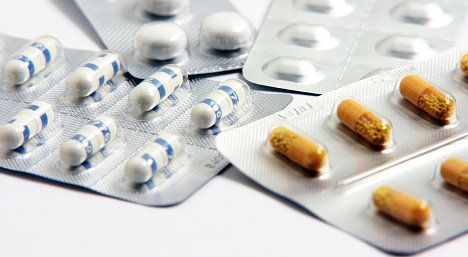The number of men resorting to purchasing illegal pills on the internet has “dramatically increased”, Michael Rudin, director of the Consumer Forum Switzerland, told online news site Blick.
“The market is growing annually by 30 percent.”
Around 300,000 packages of sexual performance-enhancing drugs were sold in Switzerland last year. But prices are steep, with a pill costing some 20 francs ($21), a sum not recoverable through health insurance.
A large number of men, many of them embarrassed at having to seek help for their erectile dysfunction, are instead buying drugs from illegal internet companies.
“Many men are too proud to go to the pharmacy or the doctor to buy officially approved Viagra,” Rudin told Blick.
As well as avoiding the need to speak about their impotence, the men also pay a lot less online, where the pills can retail for as little as two francs each.
But drugs purchased online are potentially very dangerous, since the consumer cannot be sure what ingredients they contain.
“Many are illegal and cause illness, instead of healing. They can even be fatal. A dangerous game of Russian roulette,” Swissmedic spokesman Daniel Luthi told Blick.
Recent cases have emerged where drugs bought from China or India have contained rat poison and cement. In China, cement is advertised as being a sexual performance-enhancer, which strengthens men’s penises.
“There have been hospitalizations of people who have used drugs bought over the internet and have taken an overdose,” Luthi said.
Customs seized about 1,300 packages of the drugs last year, but it is estimated that a far higher number made it through.



 Please whitelist us to continue reading.
Please whitelist us to continue reading.
Member comments